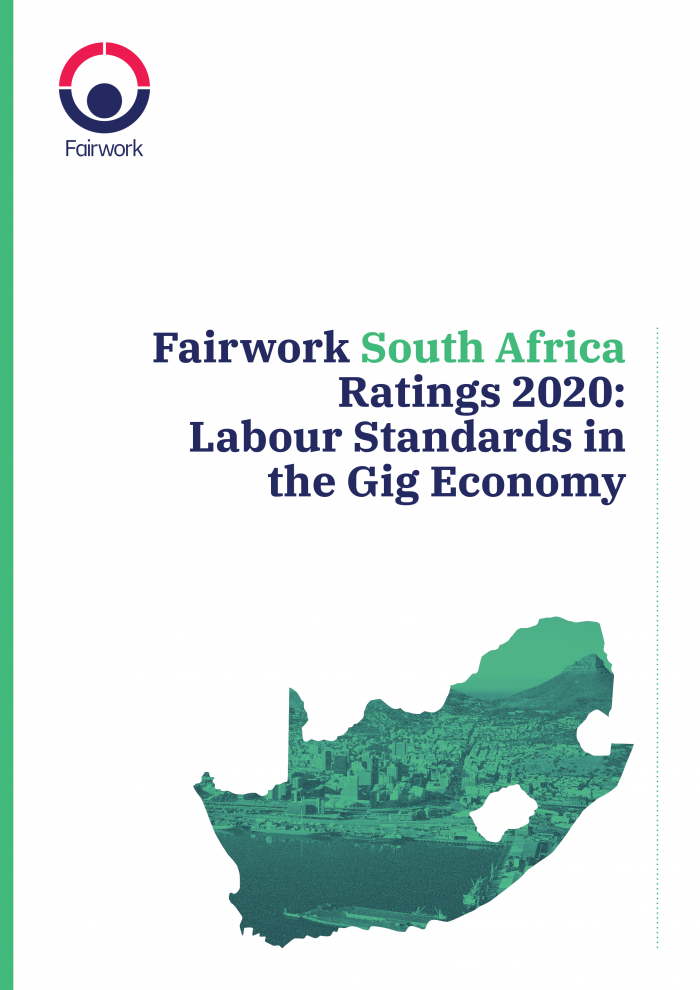Fairwork South Africa Ratings 2020: Labour Standards in the Gig Economy


Platforms have the potential to address South Africa’s huge unemployment problem. But, at the same time, some are disrupting existing social and labour structures, and potentially eroding existing jobs. Ride-hailing platforms are taking chunks out of the taxi market, but are simultaneously generating demand: many people who would never have considered taking a taxi now frequently ‘Uber’ somewhere.
Sadly, not all is well. Apart from creating market shifts, empirical evidence increasingly reveals that platform workers experience precarious and unfair conditions; for instance the pay levels have sometimes become a race to the bottom. Work in the gig economy is often unsafe and insecure. Workers lack protections afforded to regular employees, like sick pay and unemployment benefits. They are also vulnerable to arbitrary termination, often based on inequitable regimes of customer ratings. Because of these inequities, the Fairwork team has taken action to highlight unfair labour practices in the gig economy, and to assist workers, consumers and regulators as they hold platforms to account.
Suggested citation:
Fairwork. 2020. Fairwork South Africa Ratings 2020: Labour Standards in the Gig Economy. Cape Town, South Africa; Oxford, UK; Manchester, UK.